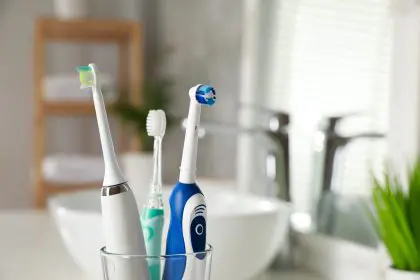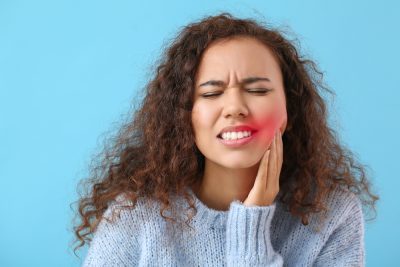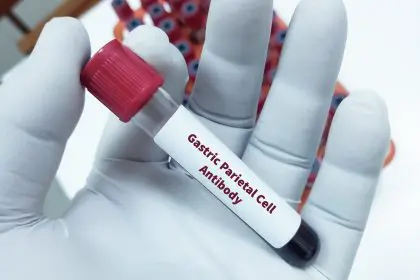We often hear about the importance of maintaining good oral hygiene, but how often do we consider the simple yet essential tools that aid us in this endeavor? Your toothbrush is one of these unsung heroes of your daily routine, and its condition plays a significant role in your oral health. It’s not just about how you brush your teeth but also about the tool you use. Many of us may be guilty of using the same toothbrush for months, oblivious to the gradual wear and tear it undergoes. In this article, we will explore the compelling reasons why changing your toothbrush quarterly can profoundly impact your oral health.
The Role of a Toothbrush in Oral Health
To understand why changing your toothbrush regularly is crucial, we’d first go into the role of this humble dental tool in maintaining your oral health. Your toothbrush removes food particles, plaque, and bacteria from your teeth and gums. It also contributes to preventing bad breath, tooth decay, gum disease, and a host of other dental issues. The effectiveness of your toothbrush diminishes over time due to the wear and tear it experiences during daily use. Bristles become frayed, lose their stiffness, and accumulate debris, making the toothbrush less efficient in its job.
Reasons to Change Your Toothbrush Quarterly
- Optimal Cleaning: Toothbrush bristles are designed to reach every nook and cranny of your mouth. However, as they wear out, their ability to clean effectively diminishes. Changing your toothbrush every three months ensures you always have a tool with bristles in prime condition, providing you with the best possible cleaning experience.
- Preventing Bacterial Buildup: Over time, toothbrushes become a breeding ground for bacteria and germs. The warm and moist environment of the bathroom is conducive to microbial growth on your toothbrush. Regularly changing your toothbrush helps minimize the risk of transferring harmful bacteria back into your mouth, which could lead to infections or other oral health issues.
- Maintaining Fresh Breath: One of the most immediate benefits of changing your toothbrush regularly is maintaining fresh breath. With their frayed bristles and bacteria buildup, old toothbrushes are less effective at removing odor-causing bacteria from your mouth. A new toothbrush ensures that you can enjoy the confidence of fresh breath.
- Reducing the Risk of Gum Disease: Gum can be a painful and costly dental problem. Your toothbrush prevents gum disease by removing plaque and food particles that can lead to gum inflammation and infection. A new toothbrush is more efficient at this task, reducing your risk of developing gum disease.
- Avoiding Tooth Decay: Tooth decay often begins with food particles and bacteria accumulating on the tooth’s surface. A toothbrush with frayed bristles may not effectively clean these areas, allowing decay to occur. Regularly changing your toothbrush ensures that you have a tool capable of removing these potential threats to your dental health.
- Preserving Toothbrush Efficiency: Even with proper care, toothbrushes wear out over time. Regular replacement maintains the efficiency of the bristles, allowing them to reach and clean all surfaces effectively. By changing your toothbrush every three months, you can be confident that your oral hygiene routine is always at its best.
- Cost-Effective: In the long run, changing your toothbrush quarterly is more cost-effective than dealing with the consequences of poor oral hygiene. Dental treatments for issues that arise from using an old, ineffective toothbrush can be expensive. Prevention is often more affordable than treatment.
- Improved Overall Health: Good oral hygiene is not just about a bright smile but also contributes to overall health. Poor oral hygiene has been linked to various systemic health issues, including heart disease, diabetes, and respiratory infections. Regularly changing your toothbrush is a small but essential step in maintaining a healthy mouth, which can positively impact your general well-being.
Proper Toothbrush Care
While changing your toothbrush quarterly is essential, proper care can help extend its lifespan and maintain its effectiveness. Here are some tips for taking care of your toothbrush:
- Rinse your toothbrush thoroughly after each use to remove debris and toothpaste.
- Allow your toothbrush to air dry, keeping it upright to prevent bacterial growth.
- Store your toothbrush in a dry area and avoid contact with other toothbrushes to prevent cross-contamination.
- Keep your toothbrush away from the toilet and always flush with the lid down to minimize airborne bacteria.
Your toothbrush is a vital tool in your daily oral hygiene routine. Changing it every three months is a simple yet effective way to maintain optimal oral health. By doing so, you can ensure that you are effectively removing food particles, bacteria, and plaque, reducing the risk of gum disease, tooth decay, and other oral health issues. The benefits extend beyond your mouth, impacting your overall health and well-being.
This story was created using AI technology.











